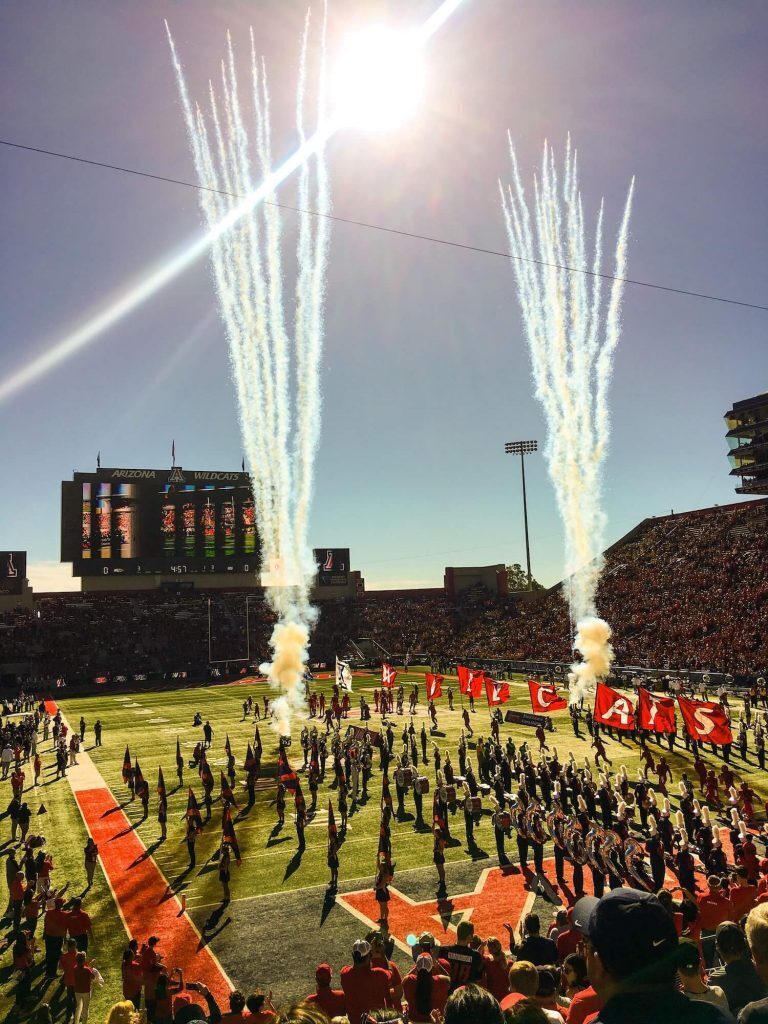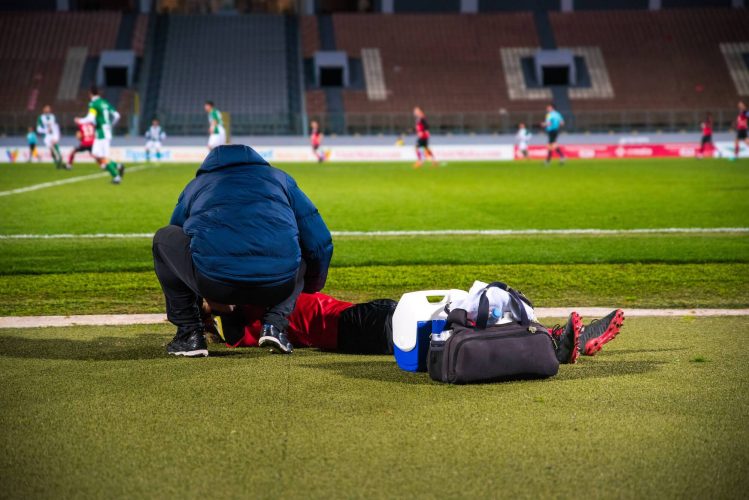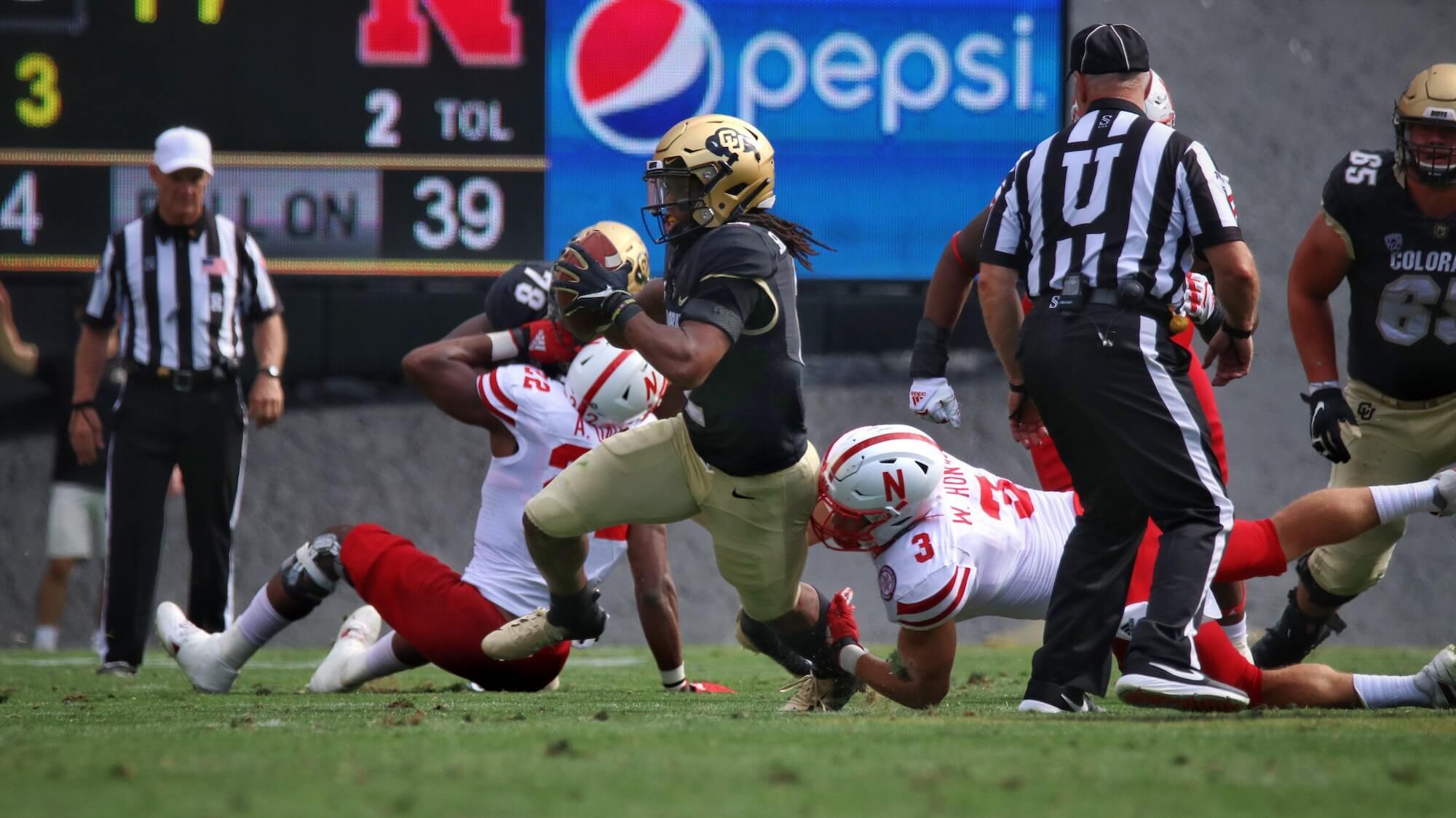Sports
Are Pro Athletes Overpaid? Maybe Not.
If you’re like me and you find joy in both overtime playoff goals in hockey as well as the gentle croon of Stuart Murdoch from Belle & Sebastian, it’s not uncommon to find fans in your life of one of these things being insufferable about the other. One of them becomes entirely too predictable at this point. Usually it happens around the time of the Super Bowl.
Members of the crowd that don’t follow sports will inevitably mention something in person or online about “sports ball” and then smugly pat themselves on the back. Politely challenge them, and often you will get a serious double down defense talking point about how athletes are overpaid. Usually by this point it feels like Patrick Bateman’s “Sri Lanka” monologue, to the tune of something like “Children are starving and that man gets millions to play a game.” Now, beyond the philosophical constipation of that argument, there might lie a shade of fallacy. So I ask: are pro athletes overpaid?
Table of Contents
Let’s view this through the lens of the National Football League, not just because I am personally most versed in it, but because it is by far the most popular professional league in North America, and most viewed entertainment. According to the Hollywood Reporter this year:
“In 2019, the league averaged 16.5 million viewers per game, about 33 precent more than the 12.43 million for the top six non-sports shows. So even though the league lost more than a million viewers per game, the gap between it and the biggest entertainment shows only widened. What’s more, the top six shows for the current season includes CBS’ 60 Minutes; excluding that, the six most watched entertainment shows draw 10.91 million viewers, trailing the NFL by a 41 percent margin.”
That’s a lot of eyes, and a lot of advertising money. In fact, the NFL just signed a historic television deal through to 2033 worth over a hundred billion dollars. The rights to broadcast American Football go through ABC/ESPN, NBC, Fox, and CBS, along with newcomer Amazon (who may try an announcer-less broadcast option, to the delight of many of us), and of course the league’s own NFL Network. Also, internationally, the league can be found on streaming services such as DAZN, who pay a hefty fee for the privilege.

The league itself is a fifteen-billion-dollar industry, and the highest valued team, the Dallas Cowboys, are estimated to be worth just shy of six billion dollars, with their latest annual revenue being about one billion. It’s fair to say that the league is not cash poor.
Keep that one billion dollar profit figure in mind. In America, the average percentage of labor cost is around thirty percent of gross, with it growing to fifty in industries such as hospitality. The average length of a career of an NFL player is 2.5 years. The average age of an NFL rookie is 21.7 years. The minimum salary of an NFL rookie is 600k. Does that percentage of labor cost add up to athlete salary to you?
It’s also worth remembering that NFL contracts are not guaranteed. Alright, that’s a lot of statistics, and averages don’t always tell the whole story. I personally try to keep in mind the old saying of liars, damn liars, and statisticians, so let’s relax on math for a moment and focus on workplace safety.
Dan Le Batard once wrote a famous piece for the Miami Herald about all-pro defensive player Jason Taylor, and what he went through physically during his time in the league. Some of the accounts would be stomach turning to even the most hardened of readers. For instance, this story of the time he hurt his feet:
…(Jason) had torn tissues in the bottom of both of them. But he wanted to play. He always wanted to play. So he went to a private room inside the football stadium.
“Like a dungeon,” he says now. “One light bulb swaying back and forth. There was a damp, musty smell. It was like the basement in Pulp Fiction.”
The doctors handed him a towel. For his mouth. To keep him from biting his tongue. And to muffle his screaming.
He continues, regarding the needles that went up into his feet.
“The first shot is ridiculous,” Taylor says. “Ridiculously horrible. Excruciating.”
But the first shot to the foot wasn’t even the remedy. The first shot was just to numb the area … in preparation for the second shot, which was worse.
How’d he play?
“I didn’t play well,” he says. “But I played better than my backup would have.”

Le Batard’s piece is a must read for anyone who has questions about the physical misery a pro athlete goes through. What’s worse is that these are as close to mandated treatments as you can imagine, and with the state of health care in the United States, it gets worse from there. In the 30 For 30 documentary Broke, there are testimonials from ex-players who, because of the NFL’s lack of job security, will be administered heavy narcotics for their injuries, only to not be able to afford care once they are out of a job. Of course, predictably, this too quickly can turn into addiction and street drugs as a way to cope. Piling on, the public at large often takes joy in seeing an athlete fall from grace in this fashion after their career sputters, especially from a rival team to one’s rooting interests.
Career longevity is left up to chances like injury, or coaching staffing, or fan popularity
Speaking of broke, a close friend of mine moved to New York City from Canada years ago, and struggled to make friends at times, as is common in that place. Eventually he found a bar that housed all the fans of his favorite hockey team, and thought he had found common ground. What he found was a man who explained to him that his entire enterprise model was separating young pro athletes from their earned money. That’s another danger: financial predators.
Imagine if you were 21 years old, and you had just been given a few million dollars. What would you spend it on? Who would try and take it from you? Are you an investing expert yet? Now imagine that the job you do is the job you’ve been preparing for your entire life, and there are no fallback opportunities in your field. The career longevity is left up to chances like injury, or coaching staffing, or fan popularity. Would you still have those millions of dollars? Don’t forget that you’re in the highest tax bracket and you’re likely giving most of that to the government, because unlike financial creeps, you likely don’t know how to hide your money in loopholes so not to get taxed. Plus, you can’t ask people what to do with your money.
Have you ever had any amount of money and asked someone what to do with it? They almost inevitably tell you to give it to them. Perhaps your weird uncle is trying to pitch you on an invention he made, or you want to buy a home for your parents who woke up so early every day to take you to practice when you were a kid. Remember, you’re barely out of teenage years in this scenario. The average working person has their highest salary when they are in their fifties. Who is playing into their fifties in pro sports? (Yes. Gordie Howe.)
We all know the story of Colin Kaepernick. The man who attempted to bring awareness of police violence to the front of American consciousness by kneeling during the national anthem rather than standing, and who was eventually blacklisted from the sport for it. Would you accept money (non-guaranteed, remember) to keep a lid on your deepest personal values and beliefs?
In 2014, five members of the then St. Louis Rams took the field in the “hands up, don’t shoot” pose in protest during the Ferguson riots. The response was police officials in the city burning effigies of the players. The other responses got worse from there, with the players falling deeply out of favor with fans and, some say, the league itself. Compare the completely understandable, and, frankly, mild protest of those five players to the actions or words of any other type of entertainment celebrity.
If some B-list actor went on an anti-police violence tirade, would they suffer? Honestly, I’d imagine it would just up their Q Score. Even still, let’s say hypothetically a backlash happened to that actor. They would live comfortably on and on into their late years on straight-to-DVD roles and royalties. The risk is low, and the expectation on athletes is punishingly unfair.
Athletes in North America hold a special spot for people. For many of us, they’re the only people we literally cheer for. For others, rooting for pro sports is the only thing we still connect with from our childhood. We want superheroes because they do superhuman things we only imagine are possible. However, what we expect from them has climbed to absurd levels at this point, and the argument that they are overpaid lacks understanding and the nuances of economics, personal risk, and social expectations. We expect less perfection out of politicians (who we also expect too much perfection from). The scrutiny we apply to athletes is ironic considering we don’t apply the same scrutiny to the parts of them, physically and emotionally, that they put at risk. Perhaps it’s time to be more thoughtful on the subject.
Further reading: Former NBA player Eddie Robinson talks about the guilty verdict in the George Floyd murder trial.

